News
-
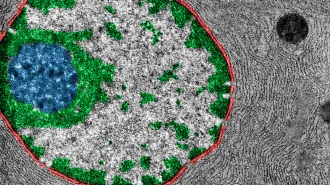 Genetics
GeneticsA key to the mystery of fast-evolving genes was found in ‘junk DNA’
A new study challenges a long-held belief that essential genes change little over time.
-
 Health & Medicine
Health & MedicineMeasles has come back with a vengeance in the last several years
The steep number of measles cases in 2019 doesn’t bode well for 2020, considering disruptions due to the COVID-19 pandemic.
-
 Earth
EarthTechnology and natural hazards clash to create ‘natech’ disasters
Hurricanes, wildfires and nature’s other extreme events are increasingly causing damage to infrastructure crucial for safety and communication.
By Megan Sever -
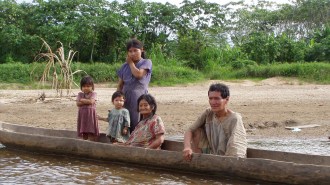 Anthropology
AnthropologyBolivia’s Tsimane people’s average body temperature fell half a degree in 16 years
A new study echoes other research suggesting that people’s average body temperature is lower today than it used to be.
By Sujata Gupta -
 Planetary Science
Planetary ScienceChemical reactions high in Mars’ atmosphere rip apart water molecules
Mars is so dry because its water constant escapes into space. A new study suggests this process occurs in the ionosphere and faster than thought.
-
 Earth
EarthSTEVE may be even less like typical auroras than scientists thought
The purple-and-green, atmospheric light show nicknamed STEVE just got even stranger.
-
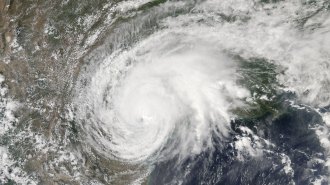 Climate
ClimateOnce hurricanes make landfall, they’re lingering longer and staying stronger
Warmer ocean waters due to human-caused climate change can help power hurricanes’ fury even after they roar ashore.
-
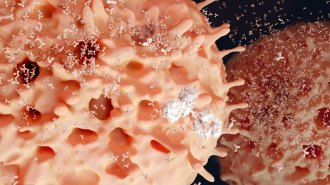 Health & Medicine
Health & MedicineProtecting the brain from infection may start with a gut reaction
In mice, immune cells in the meninges are trained to battle infections in the gut before migrating to the brain.
-
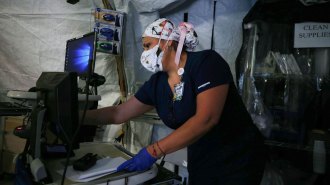 Health & Medicine
Health & MedicineCoronavirus cases are skyrocketing. Here’s what it will take to gain control
Basic public health measures can still curb COVID-19, if everyone does their part.
By Jonathan Lambert and Tina Hesman Saey -
 Earth
EarthWith Theta, 2020 sets the record for most named Atlantic storms
Climate change is expected to fuel fewer — yet more intense — Atlantic storms. With a whopping 29 storms but few strong ones, 2020 may be an outlier.
-
 Chemistry
ChemistryA new portable device can reveal a chili pepper’s heat
The “Chilica-pod” measures levels of the fiery capsaicin compound in peppers.
-
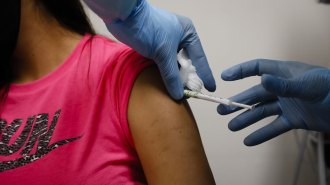 Health & Medicine
Health & MedicinePfizer’s COVID-19 vaccine is 90% effective, preliminary trial data show
An analysis of 94 COVID-19 cases shows that the mRNA-based vaccine can protect people from getting sick, though the trial is ongoing.